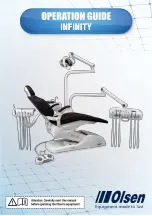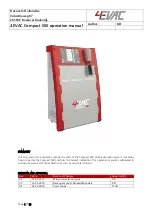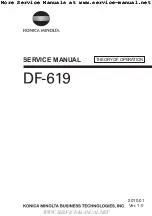
User manual |
AED mode
79
Physics principle used
The biphasic cardiac defibrillator is an instrument that delivers energy previously
stored in a capacitor to a patient. The defibrillation can be external (when the
capacitor’s discharge is delivered through the patient’s thorax) or internal (applying
the capacitor’s discharge directly to the heart with an open thorax and during
surgical procedure).
The DualMax uses biphasic shock technology, which is characterized by a current
liberated in one direction and, after a brief period of time, reverted in the opposite
direction.
During the defibrillation the myocardium is briefly depolarized by a strong positive
and negative impulse of adjustable intensity (Truncated Exponential Biphasic
Shock). These impulses are used to eliminate arterial, ventricular fibrillation, and
ventricular disturbances.
Warnings
The DualMax has a patient impedance meter that delivers shocks in 25 to 300
Ohms impedances.
If a cable or conductor is suspected of being ruptured, avoid using the
equipment due to possible risk to the operator.
Ensure that the defibrillation electrodes of the DualMax are at an appropriate
distance from other electrodes so that the power applied does not flow
through these electrodes.
Disconnect all equipment devoid of protection against the discharge of
defibrillators.
Ensure that the patient does not come into contact with any metallic parts.
In this AED mode, all of the HIGH PRIORITY and MEDIUM PRIORITY alarms
are disabled, keeping only the VISUAL ALARM of the ECG HIGH PRIORITY
and MEDIUM PRIORITY ALARM.
















































